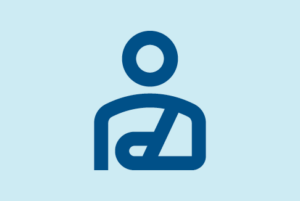The Centers for Medicare & Medicaid Services (CMS) issued its calendar year (CY) 2022 physician fee schedule (PFS) proposed rule on July 13. Comments on the rule are due by 2 p.m. (PT) on Sept. 13.
Key provisions of the rule are summarized below.
- Conversion Factor: The proposed CY 2022 PFS conversion factor is $33.58, a decrease of $1.31 from the CY 2021 PFS conversion factor of $34.89. This reflects the statutory update of 0%, the expiration of the 3.75% payment increase for CY 2021 included in the Consolidated Appropriations Act (CAA) of 2021, and an adjustment necessary to account for changes in relative value units and expenditures that would result from policies included in the proposed rule.
- Telehealth Services under the PFS: CMS proposes to allow certain services added to the Medicare telehealth list to remain on the list to the end of Dec. 31, 2023, creating a glide path to evaluate whether the services should be permanently added to the telehealth list following the COVID-19 public health emergency.
- To implement Section 123 of the CAA, CMS also proposes requiring an in-person, non-telehealth service to be provided by a provider furnishing mental health telehealth services within six months prior to the initial telehealth service, and at least once every six months thereafter. CMS also proposes limiting the use of an audio-only interactive telecommunications system when the beneficiary is not capable of using, or does not consent to, the use of two-way, audio/video technology.
- Beneficiary Coinsurance for Colorectal Screening When an Additional Procedure Is Performed: The proposed rule implements section 122 of the CAA which, over time, reduces the amount of coinsurance a Medicare beneficiary will pay when a screening colonoscopy includes a procedure. For services furnished on or after Jan. 1, 2022, the coinsurance amount paid for planned colorectal cancer screening tests that require additional related procedures will be 20% for CY 2022, 15% for CYs 2023 through 2026, 10% for CYs 2027 through 2029, and 0% beginning CY 2030 or the lesser of the actual charge for the service or the amount determined under the fee schedule that applies to the test.
- Teaching Physician Services: Under existing regulations, if a resident participates in a service furnished in a teaching setting, a teaching physician can bill for the service only if they are present for the key or critical portion of the service. Under the so-called “primary care exception,” Medicare makes PFS payment in certain teaching hospital primary care centers for certain services furnished by a resident without the physical presence of a teaching physician. CMS proposes to clarify that the time when the teaching physician was present can be included when determining E/M visit level.
- Therapy Services: CMS is implementing section 53107 of the Bipartisan Budget Act of 2018, which requires the agency to identify and pay 85% of the otherwise applicable Part B payment amount for physical therapy and occupational therapy services furnished in whole or in part by physical therapist assistants and occupational therapy assistants, for dates of service on and after Jan. 1, 2022.
- Physician Assistant Services: CMS proposes to implement section 403 of Division CC of the CAA, which authorizes Medicare to make direct payment to physician assistants for professional services they furnish under Part B beginning Jan. 1, 2022.
- Opioid Treatment Programs – Telehealth: CMS proposes allowing opioid treatment programs to furnish counseling and therapy services via audio-only interaction (such as telephone calls) after the conclusion of the COVID-19 public health emergency in cases where audio/video communication is not available to the beneficiary.
- RHCs and FQHCs Telehealth Mental Health Services: CMS proposes to allow rural health clinics (RHCs) and federally qualified health centers (FQHCs) to report and receive payment for mental health visits furnished via real-time telecommunication technology in the same way they currently do when visits take place in-person. The proposal includes audio-only visits when the beneficiary is not capable of, or does not consent to, the use of video technology.
- RHC Payment Limit Per Visit: The proposed rule continues the implementation of Section 130 of the CAA, which limits the growth rate for the all-inclusive rate for provider-based RHCs.
- Concurrent Billing for Chronic and Transitional Care Management Services for RHCs and FQHCs: CMS proposes to allow RHCs and FQHCs to bill for transitional care management and other care management services furnished for the same beneficiary during the same service period, provided all requirements for billing each code are met.
- Appropriate Use Criteria (AUC): CMS proposes to begin the payment penalty phase of the AUC program on the later of Jan. 1, 2023, or the Jan. 1 that follows the declared end of the public health emergency for COVID-19.
- Medicare Shared Savings Program (MSSP): The rule proposes multiple changes to the MSSP. These include:
- Extending the availability of the CMS web interface collection type for two years, through performance year (PY) 2023, to provider a longer transition for accountable care organizations (ACOs) reporting electronic clinical quality measure/merit-based incentive payment system clinical quality measure all-payer quality measures
- Freezing the quality performance standard for PY 2023 by providing one additional year before increasing the quality performance standard ACOs must meet to be eligible to share in savings
- Revising the methodology for calculating repayment mechanism amounts for risk-based ACOs to reduce the percentage used in the existing amount by 50%
- Revising the definition of primary care services that are used for purposes of beneficiary assignment
- Quality Payment Program: The rule includes annual updates to the Quality Payment Program. A summary of these proposals is available in this fact sheet.




